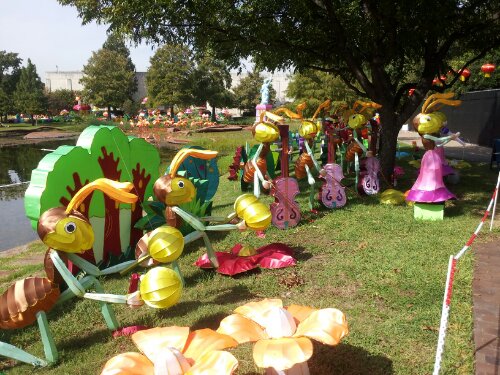This semester, I am teaching a course designed to educate students about critical thinking and the scientific method. There is an inherent risk in teaching this course. It deals with some difficult scientific questions about matters of spirituality or faith. For instance, what can be said of the authenticity of the Shroud of Turin? Are all psychics actually possessive of supernatural power, or are there more natural explanations for their abilities (such as cold reading or other forms of deceit)? Are faith healers, a kind of psychic or medium, actually performing miracles?
These are difficult issues. Why cover them? You have to cover them because there are many well-documented frauds unmasked ONLY by applying critical thinking. Seeing how the fraud is committed allows you to design experiments to test the claim without being deceived. Without critical thinking, a harmful fraud may never be unmasked. Peter Popoff Ministries thrived in the 1980s based on Popoff’s claimed “miraculous healings” at revival-style events. However, the magician and skeptic James Randi unmasked some of his frauds and tricks. As the Wikipedia article on Popoff states,
During his appearances at church conventions in the 1970s, Popoff routinely and accurately stated the home addresses and specific illnesses of his audience members, a feat he allowed them to believe was due to divine revelation and “God given ability” . . . Popoff’s earlier claims were debunked in 1986 when noted skeptic James Randi and his assistant Steve Shaw researched Popoff by attending revival meetings across the country for months. Randi asked investigator and crime scene analyst Alexander Jason for technical assistance and he was able to use a high-tech (at the time) computerized scanner . . . Jason identified and intercepted the radio transmissionsthat were being sent by Peter’s wife Elizabeth Popoff who was backstage reading information which she and her aides . . . had gathered from earlier conversations with members of the audience. Popoff would listen to these promptings with an in-ear receiver and repeat what he heard to the crowd.
Randi then went on to plant stooges in the audience, including a man dressed as a woman pretending to have uterine cancer, of which “she” was “cured” . . . After these were shown on The Tonight Show Starring Johnny Carson, Popoff’s popularity and viewing audiences declined sharply. In September 1987, sixteen months after the Carson airing, Popoff declared bankruptcy, with more than 790 creditors having claims against him. [1]
Revealing the fraud shutdown the person committing the fraud. Is it better to persist in delusion, risking your health, or watch a man who claims to be “of God” torn from his pedestal? Nothing weakens faith more than charlatans committing scam works in the name of the faith, so in my opinion it’s the highest calling when skeptics and scientists challenge testable claims. Claims of healing, claims of messages received from God, are testable when those acts are fraud or simple technical tricks. Faith doesn’t mean “ignorance,” nor should it.
Why do I mentioned all of this? When you confront students with the fraud – essentially, when you pull back the curtain and reveal the man who is behind the Great and Powerful Oz – they have many kinds of reactions. Some feel that their skepticism in the supernatural is confirmed by seeing how the fraud is committed. Others find this to be a challenge to their faith, a walk into uncomfortable territory that we as professors should not be allowed to take.
What happens next is unfortunate, for me and for the students. Some students will approach you after class, after you discuss cold reading and other kinds of fraud perpetrated to feign supernatural powers. They will tell you stories of family members who have reported miraculous events, faith healings, and other allegedly supernatural occurrences. This puts you in a tough position. After all, as the instructor of a course on the scientific method and a scientist, you are naturally skeptical. They find this offensive.
Why, then, approach a person teaching critical thinking and then be offended when that critical thinking is applied to your own example? Why even cite the example, when the whole point of the course is to teach you critical thinking with the understanding that there are difficult questions to which this skill set can be applied? Yes, it’s uncomfortable; but what is the alternative? As I said above, without skepticism we risk being easily conned into believing truths which are not, in fact, truths.
If life is a quest for truth, then critical thinking is the double-edged sword of that quest. When wielded, it cuts both ways: deep into the heart of reality, revealing its glory, and deep into the bowels of common sense and comfortable beliefs, leaving a wretched stink that risks poisoning the quest itself. It’s hard – even painful – to let go of common sense and comfortable beliefs and face the world as it actually might be. We don’t want our miracles to be statistically common occurrences with natural causes; we don’t want our faith healings to be spontaneous remissions or the workings of the human immune system; we don’t want to be left in a world where mind cannot overcome matter.
On the other hand, I don’t like to be conned, duped, or fooled. And so, all I can do is choose critical thinking. I can’t make anyone else choose this. All I can do is teach critical thinking, live critical thinking, and be true to myself. I like my truths to be as closely wedded to reality as I can get them, and I’ve never been fooled less than when I put my faith in the rational intelligibility of the cosmos and my skepticism in the claims of all my fellow humans. We are all flawed creatures, searching for truth; critical thinking is the one candle we have against the dark, against the lightless chaos of wishful thinking that risks enveloping us, an intellectual void less rich in truth than the luminous future we seek to create with science and reason.





2 thoughts on “The compulsion to tell tales of faith”
The course description is almost enough to make me wish I was an undergrad again just so I could take it. I suspect that if I were in this class, I would come to you with a more general question rather than any specific story of a faith healing or other miracle.
There seems to be an assumption behind your entry, namely that critical thinking and the scientific will debunk or explain away all claims of the miraculous. Is this the assumption that you make personally or in this class?
In other words, what would happen if critical thinking and the scientific method were to encounter a genuine miracle?
Hi Luke!
We’re very up-front with the students; the scientific method has limitations. For instance, it cannot prove that something is a miracle (miracles technically lie outside natural causes, and therefore are not in the domain of science); it can only prove that a claimed miracle is, in fact, not one. Now, even here there are shades of gray. For instance, if real fraud or deceit is uncovered (e.g. somebody admits to conning their audience, or the trick is revealed clearly even without an admission) then what I said is straight-forward. However, when it comes to very rare events all that can really be said is the probability of the occurrence of such event according to natural laws; it cannot distinguish a single event, which may in fact be miraculous, from other events occurring with rare chance but otherwise natural explanations.
If critical thinking and the scientific method were to encounter a genuine miracle, one that cannot be explained by natural causes, then all science can do is admit it cannot explain the event by natural causes alone. Absent direct proof for the omnipotent being behind the miracle, all science can do is state that there is no plausible natural cause and move on. We do teach the students that one is not allowed to apply the false dichotomy to unexplained events. There are always at least three options when something scientific thinking is applied to a claim: science will explain the claim; science will not explain the claim, but only because the knowledge of the natural world is not sufficient yet to explain it; or science cannot explain the claim, because it truly lies outside of nature. The false dichotomy, at heart, is the assumption that since science cannot explain an event it MUST be supernatural; that’s a false choice, and we warn students against that.
The assumption behind my post was that when presented with a personal anecdote about something that is claimed to be miraculous, it’s my job to teach the students to ask critical questions. Why do they believe what they believe, and are they sure those beliefs are on firm ground? Critical thinking does have the power to reveal scams and frauds, leaving behind only the real and true miracles that simply cannot be explained. But to ignore critical thinking is to admit that we should not or cannot explain anything; that is a recipe for weak beliefs. In a complicated world, I want the best system of knowing, and I want my miracles to truly be miraculous.